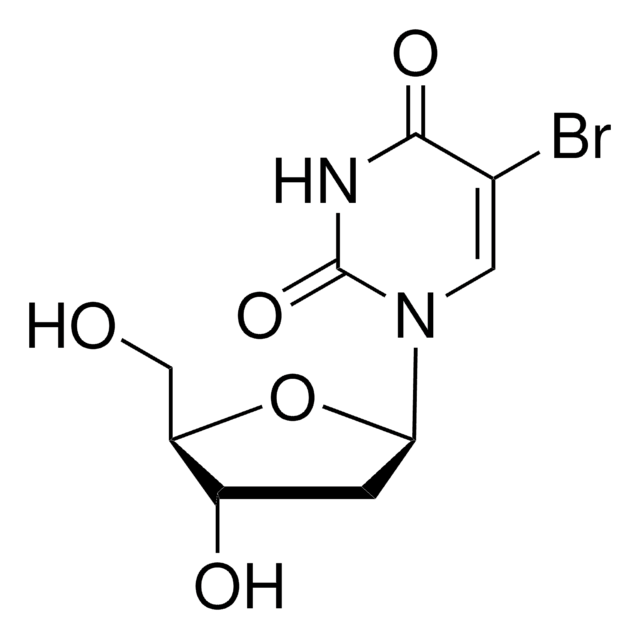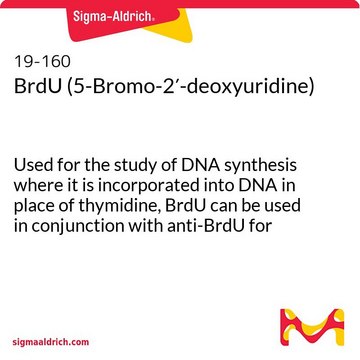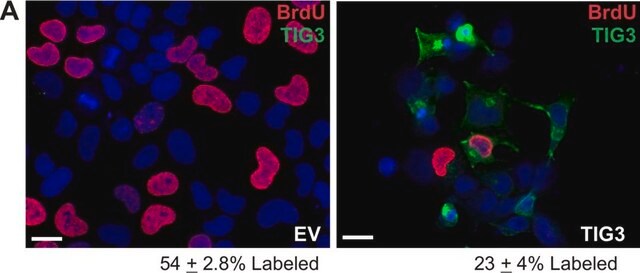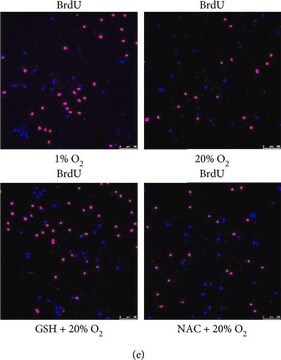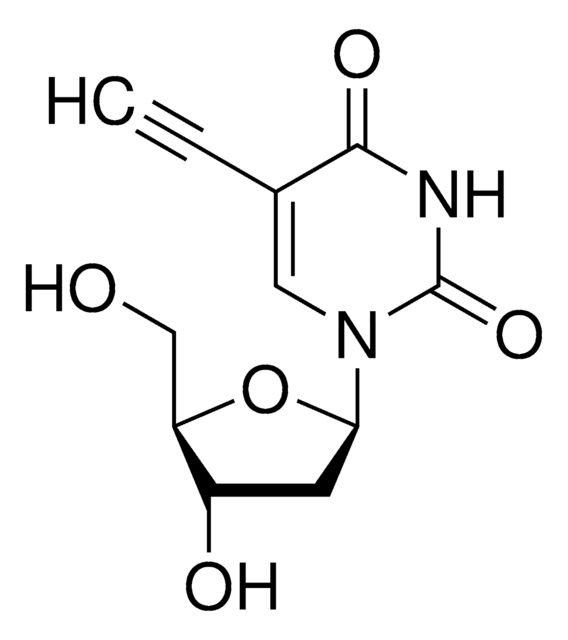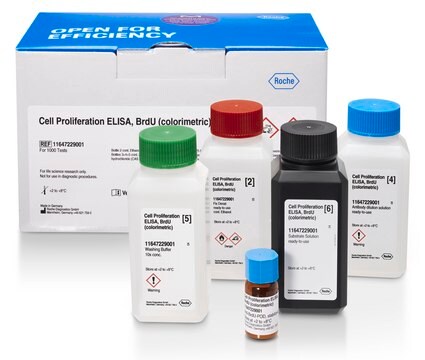203806
5-Bromo-2′-deoxyuridine
Thymidine analog. Useful for the study of DNA synthesis where it is incorporated into DNA in place of thymidine.
Synonym(s):
5-Bromo-2′-deoxyuridine, 5-BrdU
About This Item
Recommended Products
description
RTECS - YU7350000
Quality Level
Assay
≥98% (HPLC)
form
solid
manufacturer/tradename
Calbiochem®
storage condition
OK to freeze
color
white
solubility
water: 10 mg/mL
0.1 M NaOH: 50 mg/mL
DMSO: 50 mg/mL
shipped in
ambient
storage temp.
15-25°C
SMILES string
Brc1[c]([nH][c]([n](c1)C2OC(C(C2)O)CO)=O)=O
InChI
1S/C9H11BrN2O5/c10-4-2-12(9(16)11-8(4)15)7-1-5(14)6(3-13)17-7/h2,5-7,13-14H,1,3H2,(H,11,15,16)
InChI key
WOVKYSAHUYNSMH-UHFFFAOYSA-N
General description
Warning
Reconstitution
Other Notes
Cattoretti, G., et al. 1993. J. Pathol. 171, 83.
Fukuda, K., et al. 1990. Anal. Quant. Cytol. Histol. 12, 135.
Legal Information
Signal Word
Danger
Hazard Statements
Precautionary Statements
Hazard Classifications
Muta. 1B - Repr. 2
Storage Class Code
6.1C - Combustible acute toxic Cat.3 / toxic compounds or compounds which causing chronic effects
WGK
WGK 2
Certificates of Analysis (COA)
Search for Certificates of Analysis (COA) by entering the products Lot/Batch Number. Lot and Batch Numbers can be found on a product’s label following the words ‘Lot’ or ‘Batch’.
Already Own This Product?
Find documentation for the products that you have recently purchased in the Document Library.
Our team of scientists has experience in all areas of research including Life Science, Material Science, Chemical Synthesis, Chromatography, Analytical and many others.
Contact Technical Service